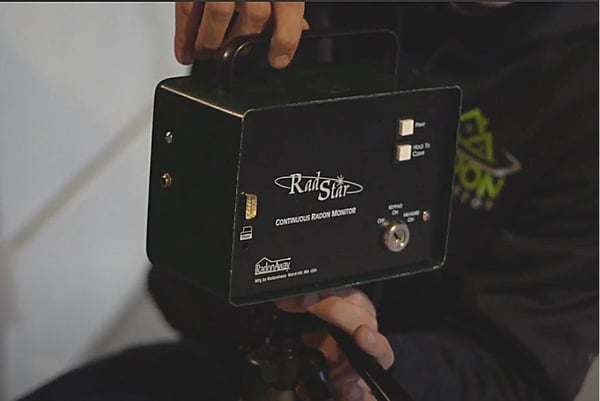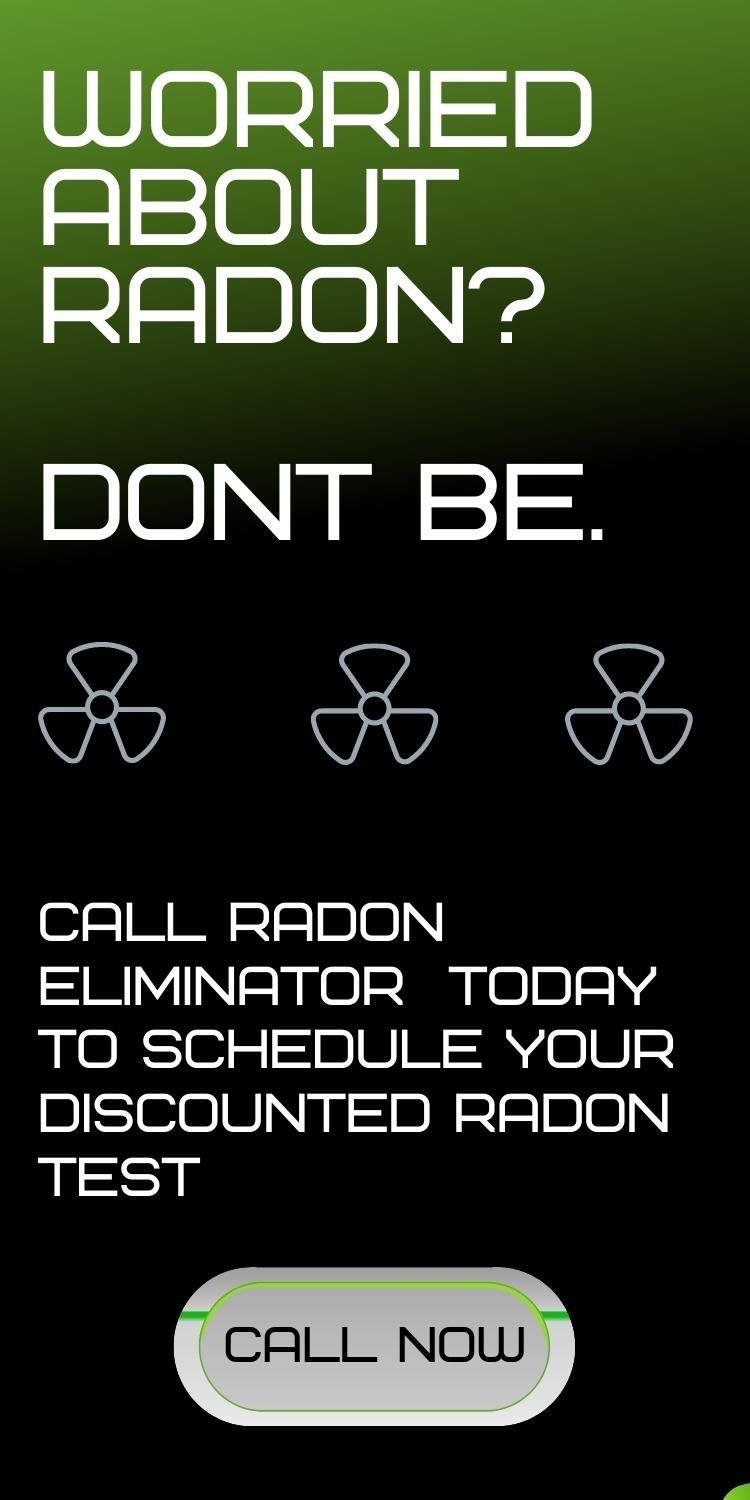Unfortunately, there is no cure or treatments available to treat radon poisoning.
If you think you may be suffering from radon poisoning, it's essential to limit further exposure to radon as much as possible.
This will keep further lung damage from developing and keep other symptoms from worsening.
Any potential source of radon should be tested, especially in your home.
If tests come back showing that your home has high radon levels, you need to take immediate steps to reduce the radon levels in your home.
This will also reduce your risk of lung cancer.
In the article below, we will talk about radon and what you should do if you suspect you have radon poisoning.
Table of Contents
- What Is Radon?
- How Are You Exposed To Radon?
- What Should You Do If You Think You've Been Exposed?
- Test Your Home For Radon
- Radon Eliminator
What Is Radon?
Radon is an odorless, tasteless, and invisible radioactive gas that occurs from the breakdown of uranium.
When uranium decays, it turns into another metal called radium. In turn, when radium breaks down, it becomes radon.
Radon can leave the soil and become part of the air and water surrounding your home.
Although radon can be found in your water, it is much more dangerous when inhaled.
Radon can be found in the air all around you. However, when found outdoors, it is usually harmless.
Radon primarily becomes an issue when it gets trapped in your home.
Large amounts of radon can cause severe health problems.
In fact, about 21,000 lung cancer deaths are attributed to radon each year.

How Are You Exposed To Radon?
You're exposed to radon when it gets in the air you breathe.
Large amounts of radon can be found at home, work, or any building you frequently visit.
Most people spend most of their time at home, so that's where you are most likely to be exposed to radon.
Radon can come out of the ground and into your home through cracks in your foundation and walls.
Once it gets into your home, it becomes trapped inside, where it will build up over time.
You can also get exposed to radon through your well water or building materials, but that is much less common.
Elevated radon levels can occur in any home, whether you have a basement, a crawl space, or is built on a slab.
Indoor radon levels are more likely to be elevated in homes that are well insulated, tightly sealed, or located where the soil is rich in uranium, thorium, and radium.
It's estimated that one in every 15 homes has an elevated radon level, so it's not safe to assume that your house isn't affected.
What Should You Do If You Think You've Been Exposed?
Unfortunately, there aren't any medical tests that can measure if you have a greater risk of radon exposure or if you've already been exposed to it.
But if you're worried you have been exposed to elevated radon levels, speak with your doctor about your symptoms and whether or not you should get a regular health checkup.
And since radon can increase your risk of cancer, you should undergo tests to look for possible signs of lung cancer.
Symptoms of radon poisoning, and therefore symptoms of lung cancer include:
- Chest pain
- Tightness in the chest
- Shortness of breath
- Loss of appetite
- New, worsening, or persistent cough
- Trouble swallowing
Some people wonder if there is a link between radon poisoning and head pain. Read our blog post: "Will Radon Give Me Headaches?"
Cigarette smoke obviously increases your chances of developing lung cancer, so if you smoke and you've been exposed to high levels of radon, you need to quit smoking ASAP.
The radon exposure and cigarette smoking combo raise the risk of lung cancer more than either smoking or radon exposure alone.
The US government has established the Radiation Exposure Compensation Program for people who have been exposed to radon at work, like uranium miners, millers, and transporters.
This program offers compensation for lung cancer and other lung diseases to people who qualify.
Test Your Home For Radon
The best thing for ensuring you don't develop radon poisoning is to test your home for elevated levels.
You should still have your home tested even if your next-door neighbor's home did not test highly for radon levels.
Radon levels can vary from home to home, so the only way to ensure you don't have elevated radon levels is to test for them.
You can test your home on your own with radon test kits. Still, it's recommended that you test it with the help of a professional mitigation company.
If you test your home and your radon levels are higher than four picocuries per liter, you need to reduce your levels.
Short-term Radon Testing
If you're in a hurry, you can test your home with a short-term test.
These tests will only measure radon for two or three days.
If you choose a short-term test, you will have to keep your windows and doors closed as much as possible.
You'll also need to avoid fans that bring in air from the outside.

Long-term Radon Testing
Since radon levels fluctuate from month to month and from day to day, you'll get the most accurate results from a long-term test.
Long-term tests measure radon levels in your home for 90 days or more.
Fortunately, long-term radon tests are relatively inexpensive and easy to use.
They're available at most hardware and big-box stores.
If you decide to do a long-term test yourself, make sure you follow package instructions carefully.
You should put your test kit in your basement or the lowest level of your home, and once the device is in place, you simply set it and forget it.
When the test is finished, you pack it up and send it back to the company for analysis.
If you aren't comfortable testing for radon yourself, or you'd rather have a professional do it to ensure accurate results, you can work with a radon mitigation company.
Radon Eliminator
The Radon Eliminator team understands radon poisoning risks due to exposure to high radon gas levels.
If you think you have any symptoms of radon poisoning, there is no better time than now to have your home tested.
If your home has an elevated radon level, you and your family could be at risk of developing lung cancer.
Radon Eliminator can test your home.
If your radon levels come back high, we can install a radon mitigation system to lower the radon levels in your home.
To take action and get started with Radon Eliminator, click the button below for a discounted test.




